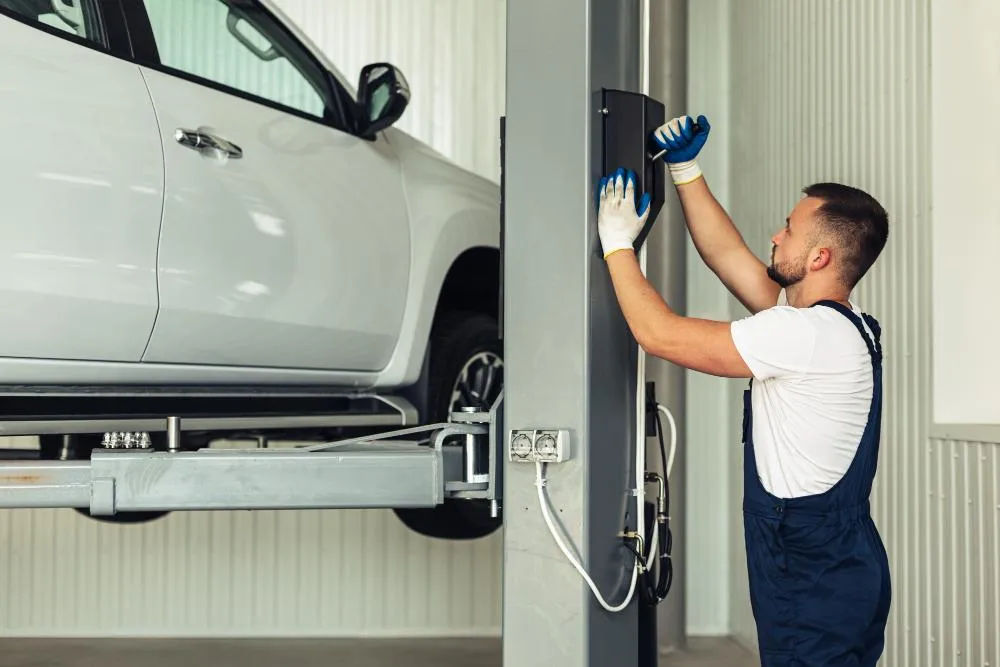
Aluminum Vehicle Repairs: What Makes Them Different & Why It Matters
Not all vehicles are built the same — and not all auto body repairs should be treated the same either. If you own a truck like a Ford F-150 with an aluminum body or a luxury car with aluminum panels, you may have heard that repairing aluminum is a little more complicated than repairing steel.
But why does that matter to you as a vehicle owner? This article breaks down the key differences between aluminum and steel vehicle repairs, why specialized shops are needed, and how choosing the right facility can save you money and protect your car’s value.
Understanding Aluminum Vehicle Repairs
Modern vehicles are increasingly built with aluminum because it’s strong yet lightweight, helping improve fuel efficiency and performance. However, aluminum behaves differently than steel during both damage and repair.
Here’s what sets aluminum apart:
Strength-to-weight ratio – Aluminum is lighter, helping cars and trucks meet fuel economy standards
Corrosion resistance – Unlike steel, aluminum doesn’t rust, but it can corrode if exposed to contaminants
Different repair behavior – Aluminum doesn’t “remember” its original shape like steel does, so technicians must use special tools and processes to reshape panels
Heat sensitivity – Excessive heat can weaken aluminum, so welding and bonding require precise temperature control
These differences mean that repairs require a specific approach, equipment, and training.
Why Specialized Aluminum Repair Matters
If your car’s body panels are aluminum, taking it to a shop without aluminum-certified equipment can lead to poor results — or even unsafe repairs. Here are the key reasons it matters:
Proper Tools & Dedicated Workspaces
Aluminum repairs require separate tools and clean work areas to avoid cross-contamination with steel. Steel particles can cause galvanic corrosion on aluminum panels, leading to future damage.
Trained & Certified Technicians
Shaping, bonding, and welding aluminum require additional training. A shop with certified technicians ensures repairs meet manufacturer standards.
Better Long-Term Results
Because aluminum is harder to work with, incorrect techniques can lead to weak joints, panel warping, or poor fit. Proper repairs restore the car’s strength and appearance.
Preserving Vehicle Value
Insurance companies and buyers look for proper documentation of repairs. Aluminum-certified work maintains your car’s value and may be required to keep warranties valid.
How to Choose the Right Aluminum Repair Shop
If your vehicle has aluminum components, here’s how to find the right shop to handle the job:
Confirm Aluminum Certification
Ask if the shop is certified for aluminum repairs or part of a manufacturer-approved program.Ask About Dedicated Aluminum Space
A proper shop will have separate bays, tools, and dust extraction systems to protect the repair quality.Check Technician Training
Inquire about their training — I-CAR or OEM certification is a good sign.Review Past Work
Ask for examples of aluminum repairs they’ve done, or look for before-and-after photos.Verify Warranty
Quality shops will warranty their aluminum repairs against workmanship defects.Look for Insurance Partnership Experience
A shop that regularly works with insurers can streamline the claims process for you.
FAQs About Aluminum Vehicle Repairs
Is aluminum more expensive to repair than steel?
Yes, typically. Aluminum repair requires specialized equipment, more labor time, and highly trained technicians, which can make repairs cost more than steel.Can every body shop repair aluminum vehicles?
No. Only shops with the right equipment, training, and clean workspace should handle aluminum repairs.What happens if steel and aluminum tools mix?
Cross-contamination can cause corrosion, leading to panel damage over time. This is why dedicated tools and bays are required.Are aluminum panels harder to fix after a collision?
Yes. Aluminum is more difficult to reshape than steel, so precision is critical to restore proper fit and finish.How do I know if my car has aluminum panels?
Check your owner’s manual or manufacturer’s website, or ask your repair shop to verify. Many trucks and luxury vehicles use aluminum components.
Conclusion
Aluminum vehicles offer plenty of benefits — lighter weight, better fuel efficiency, and advanced safety — but they require a more specialized repair process. Using a shop that understands aluminum repairs ensures proper tools, trained technicians, and a result that restores your car to its pre-accident condition.
At Express Auto Paint Repair in Lake Worth Beach, we’re equipped to handle aluminum repairs with the right techniques and certified technicians. Whether you have a truck, SUV, or luxury vehicle, we’ll ensure your repairs are safe, precise, and long-lasting.